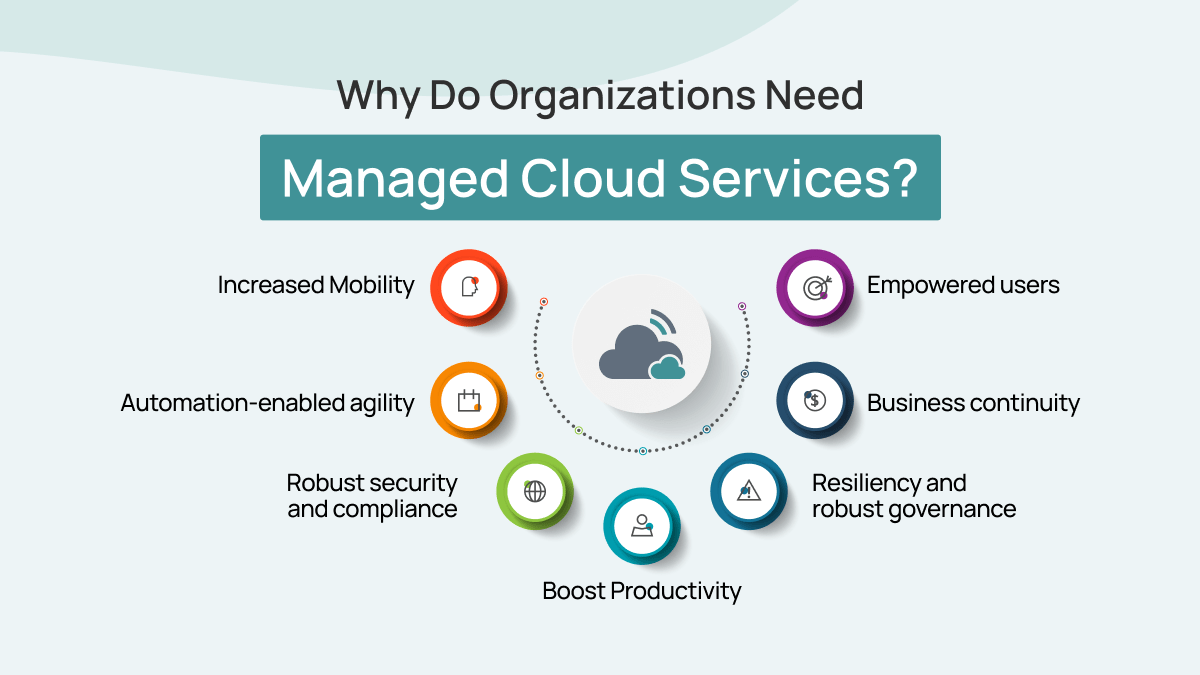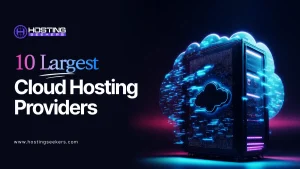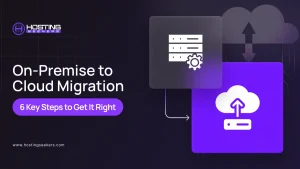
What are Managed Cloud Services? Why Do You Need Them
Cloud Industry Updated on : September 29, 2025Advancements in technology are resulting in numerous organizations turning to cloud computing to safeguard their information and run their operations smoothly. Despite the many benefits of the cloud, it can make your daily tasks time-consuming and require lots of time to manage on your own. This is where managed cloud services come into play, taking control of managing your cloud data security. In this blog, we will explore managed cloud services and why you need them.
What are Managed Cloud Services?
These services handle the management and control of a client’s cloud platform that includes maintenance, migration, and optimization. So, by utilizing this service, a business can ensure its cloud resources run smoothly. Also, outsourcing cloud management also enables businesses to avoid new hiring and training costs.
They can offer private, public, and hybrid cloud environments. Working with a managed cloud services provider is a collaborative process.
Therefore, to determine the best cloud resources for the user’s data and application. They may establish a custom plan detailing the steps to build and run an optimized cloud environment. Moreover, the global cloud managed is expected to reach around $305.6 billion by 203,0, growing at a CAGR of 14.7% from 2025 to 2030.
Types of Managed Cloud Services
1. Infrastructure as a Services (IaaS)
Infrastructure as a Service (IaaS) provides virtualized computing resources such as storage, servers, and networking. It allows businesses to build and manage their cloud-based environments while maintaining greater control over infrastructure. Just like a house needs a solid foundation, sturdy walls, and a reliable roof, IaaS delivers the essential building blocks for your virtual foundation.
2. Platform as a Service (PaaS)
Platform as a Service (PaaS) act as a managed environment for businesses building applications on platforms like AWS Elastic Beanstalk. The service provider takes care of configuration, deployment, and scaling, ensuring your apps run efficiently and adapt to changing demands. Whether it’s a small startup project or a complex enterprise solution, PaaS streamlines management so you can focus on innovation.
3. Software as a Service (SaaS)
Software as a Service is the easiest way to offer software to a non-technical audience. It offers ready to use applications over the internet, removing the requirement for local installations, whether it’s for collaboration tools, customer relationship management or office suites.
4. Hybrid Could Management
Hybrid Cloud Management brings together on-premises systems and cloud platforms, ensuring smooth integration, centralized control, and unified visibility. For example, a manufacturing company using both local data storage and cloud-based applications can rely on a provider to connect everything, enforce consistent security, and streamline operations.
The real strength of managed cloud services lies in their flexibility. Whether you need full management, partial support, or a tailored solution, they adapt to fit your unique business needs.
5. Storage as a Service (STaaS)
Storage as a Service is another type of managed cloud service that offers businesses on-demand cloud storage without requiring investment in expensive hardware or maintenance. Also, Managed service providers can manage the storage infrastructure that allows companies to securely store, back up, and access their data anytime from anywhere. STaaS is highly flexible so that you only pay for the storage you utilize, making it cost-effective for both small businesses and large enterprises.
What Are the Benefits of Cloud Managed Services?
Managed Cloud solutions can help businesses augment staff in a highly competitive job market and simplify internal IT strategies by reducing the moving parts involved.
1. Overcome the cloud Skills gap
Cloud computing skills are among the most highly sought-after skills on the job market. Also, the cloud demands competitive salaries and benefits. Working with a managed cloud service provider can help you overcome the cloud skills gap and gain access to the talent and resources you require to set yourself up for success.
Cloud Managed Cloud services provide a focus on making sure staff are updated with cloud certifications, ensuring they are competent in using a wide range of cloud services to offer solutions.
2. On-Demand Access to Expertise
With Cloud Managed Services, you may get on-demand access to qualified and experienced resources with deep domain knowledge in your area of expertise. Therefore, these resources not only help develop tailored blueprints to help you meet large business goals but also, they can provide timely strategic guidance and implement a proven set of processes, so you can unlock the full strength of your IT ecosystem.
3. Save Money
Developing in-house cloud operations will be cheaper, but you can save money with managed cloud computing services. That’s because the service providers operate a wide range of software tools and already baked processes that you can be looped into instead of starting from scratch.
4. Reduce Your Risk of Security Threats
These services also provide managed security services that can help. It incorporates tools like cloud security posture management and support services like incident management. They can help companies fill the gaps in security and take the necessary steps to protect their data.
Average Price of Managed Cloud Services
The exact cost of managed cloud services varies depending on the provider, the size of your business, and the level of support required. However, based on industry research, the average price typically falls between $80–$200 per user per month. Smaller businesses may be on the lower end of this range, while enterprises with complex infrastructures, compliance needs, or 24/7 support requirements often pay more.
Why Do Organizations Need Managed Cloud Services?

1. Resiliency and robust governance
Organizations are rapidly adopting multi-cloud strategies, including cloud management and cloud deployment, to improve resiliency, minimize costs, bring new services and products to market more immediately, and better serve their clients. Also, cloud-managed services make sure to control cloud usage.
2. Robust security and compliance
Since cloud managed services manage, monitor, and maintain the cloud. Organizations can deliver new services and applications to the market immediately and with compliance and security with government and industry regulations.
3. Business continuity
Outsourcing cloud management enables businesses to avoid new training and hiring costs, reduce the impact of talent disruptions, decrease costs in maintaining and operating systems and free up internal IT teams to focus on efforts that drive new business outcomes.
4. Automation-enabled agility
Cloud-managed services offer regular maintenance, 24/7 monitoring, and security updates. They also allow you to utilize the inherent automation to reduce human effort and error.
5. Empowered users
To increase productivity, empower users to take advantage of self-service options on the cloud, such as DevOps pipelines, portals, and dashboards.
6. Increased Mobility
Managed cloud platform offers employees 24/7 access to data and applications from anywhere and anytime on any device.
7. Boost Productivity
Moving Desktops and workspace solutions to the cloud by using cloud managed services increases user productivity, minimizes the number and seriousness of helpdesk calls, enhances business continuity, speeds new-features rollouts and decreases costs.
Summing Up
Managed cloud services offer businesses a reliable pathway to achieving their goals securely and efficiently. By partnering with the right service provider, organizations can streamline their applications, making them more accessible and user-friendly for engineering teams and the entire enterprise. This professional collaboration ensures optimized performance, enhanced security, and seamless scalability, empowering businesses to focus on innovation and growth.
Frequently Asked Questions
Q 1: Why choose cloud-managed services?
Ans: Cloud managed services offer a variety of benefits, including:
- Expertise and Support: Access to a team of cloud professionals who can provide guidance, troubleshooting, and ongoing support.
- Cost Efficiency: Reduced operational costs by outsourcing cloud management tasks, allowing your team to focus on core business activities.
- Scalability: Easy scaling of services to match business growth and changing needs.
- Security: Enhanced security measures and compliance with industry standards.
Q 2: What is meant by managed services?
Ans: Managed services refer to the practice of outsourcing the responsibility for maintaining and anticipating the need for a range of processes and functions to improve operations and cut expenses.
Q 3: What is the difference between cloud services and managed cloud services?
Ans: Cloud Services: These are basic services offered by cloud providers, such as storage, computing power, and networking capabilities. Users typically manage their own cloud infrastructure, applications, and data.
Managed Cloud Services: These services go a step further by providing additional management, monitoring, and support for cloud infrastructure. The service providers handle tasks like system updates, security, and performance optimization, allowing businesses to leverage cloud benefits without the complexity of self-management.
Q 4: What are managed services in AWS?
Ans: Managed services in AWS (Amazon Web Services) include a range of solutions that help organizations manage their AWS infrastructure more efficiently. Examples include:
- AWS Managed Services (AMS): A suite of services that provides ongoing management, security, monitoring, and optimization of AWS environments.
- AWS CloudFormation: Allows users to model and set up their Amazon Web Services resources.
- AWS Managed Security Services: Services to help protect AWS environments through continuous monitoring and threat detection.
- AWS Managed Database Services: Such as Amazon RDS, which takes care of database maintenance, backups, and scaling.
Q 5: What are the benefits of managed cloud security?
Ans: Managed cloud security offers several key benefits:
- Enhanced Protection: Comprehensive security measures, including threat detection, incident response, and regular security updates.
- Compliance: Assistance with meeting regulatory requirements and industry standards.
- Expertise: Access to security professionals with specialized knowledge and experience in cloud security.
- Proactive Monitoring: Continuous monitoring for potential threats and vulnerabilities.
- Cost Savings: Reduced need for in-house security resources and infrastructure.
Q 6: How do managed services work?
Ans: Assessment: The managed service providers (MSPs) evaluate the client’s IT environment and business needs.
Onboarding: MSP sets up the necessary infrastructure, tools, and processes to manage the client’s systems.
Monitoring and Management: Continuous monitoring of systems for performance, security, and compliance.
Maintenance and Support: Regular updates, patch management, and support services to ensure smooth operation.
Q 7: What are cloud-managed services?
Ans. Cloud managed services refer to third-party management of a company’s cloud infrastructure and applications. These services include monitoring, security, maintenance, backups, and optimization, allowing businesses to focus on operations instead of managing complex cloud environments.
Q 8. Who are the top providers of cloud management services?
Ans. Well there are many top providers for Cloud management services. Some of the top cloud management service providers include Rackspace, IBM Cloud Managed Services, Accenture Cloud Services, Capgemini, and Cloudreach. These companies offer a range of services, from monitoring and security to full-scale cloud optimization and migration support.
Q 9. What is a Managed Cloud Service Provider?
Ans. A Managed Cloud Service Provider (MCSP) is a company that takes responsibility for managing and maintaining a client’s cloud infrastructure. They handle deployment, monitoring, security, performance optimization, and troubleshooting, ensuring that cloud resources run efficiently and reliably.
Q 10. Who are some managed service providers?
Ans. Some of the service providers include Accenture, IBM, Capgemini, and Cloudreach, among others. They offer services like cloud monitoring, security, infrastructure management, and migration support for businesses using public, private, or hybrid clouds.
Q 11. Is GCP cheaper than AWS?
Ans. Pricing between Google Cloud Platform (GCP) and Amazon Web Services (AWS) depends on the specific services and usage patterns. In some cases, GCP offers lower costs for computers and storage, but AWS often has more flexible pricing tiers and discounts. The cheapest option varies based on your workload, region, and scaling needs.
Q 12. Why is Azure better than AWS?
Ans. Azure is often considered better than AWS for businesses that are already invested in the Microsoft ecosystem, as it integrates seamlessly with tools like Windows Server, Active Directory, and Office 365. It also offers strong hybrid cloud capabilities, enterprise-friendly pricing, and global data center coverage.




